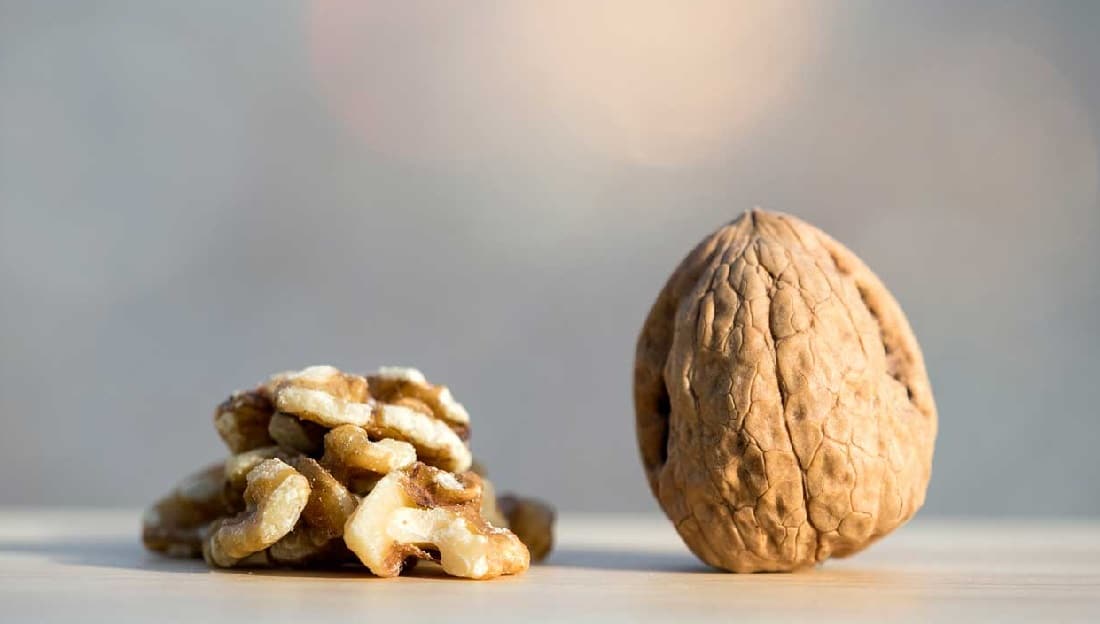We will mention the benefits of walnuts for the colon in this article, as walnuts are one of the most important types of nuts and contain a high nutritional value. Many people eat walnuts in very large quantities, but in most cases, they may cause side effects when consumed in large quantities. Therefore, moderation must be followed in a very correct manner to avoid causing problems.
Benefits of walnuts for the colon
Walnuts have many benefits for the colon, as they contain many important vitamins and minerals that the body uses, such as calcium, iron, magnesium, copper, folic acid, and vitamin E. They are also a primary source of unsaturated fatty acids, also known as healthy fats. The most prominent of these benefits are as follows:
- It strengthens memory and also enhances mental function.
- It supports the body with energy.
- One of the benefits of walnuts is that they reduce the amount of triglycerides and cholesterol in the body, and maintain heart health.
- Walnuts maintain bone health.
- It gives freshness to the skin and works to enhance the health of nails and hair.
- Walnuts protect against some diseases, the most prominent of which are type 2 diabetes, osteoporosis, and some types of cancer, such as prostate cancer, gallbladder disease, and heart and arterial disease.
- It has anti-inflammatory properties, and in addition, it contains a high amount of phenolic compounds that fight inflammation, such as ellagic acid and alpha-linolenic acid.
Harmful effects of walnuts
Eating large quantities of walnuts may cause many problems and some undesirable effects. Therefore, we advise against consuming large quantities to maintain human health. The most prominent of these harms are as follows:
1. Weight gain
- There is a difference of opinion among people about whether walnuts can cause significant weight gain or weight loss, but walnuts contain a very high percentage of calories and also fat.
- This leads to an increase in body weight, especially when used in very large quantities.
2. Diarrhea
- Walnuts contain a large amount of dietary fiber, and they also contain a high oil content. For this reason, consuming large amounts of walnuts can cause diarrhea, especially in individuals with digestive system diseases or disorders.
3. Kidney stones formation
- Walnuts contain oxalate, and consuming a large amount of walnuts (more than 46 grams per day) may contribute to the formation of kidney stones.
4. Allergic reactions
Nuts can cause allergic reactions in people with nut allergies, and can lead to a wide range of symptoms ranging in severity from mild ones such as itchy mouth, rash, and shortness of breath, to more serious symptoms resulting from shock. Examples of these symptoms include:
- Frequent cough.
- Fainting and dizziness may occur.
- Hoarseness of voice.
- Difficulty speaking.
- Swelling of the tongue and throat.
- Pale skin, especially in children.
- Difficulty breathing with whistling sound.
Precautions for using walnuts
There are many precautions when using walnuts that must be taken into account before using them. In general, it is best not to eat walnuts for people who suffer from the following conditions:
- People who suffer from irritable bowel syndrome for many of the reasons mentioned above.
- Young children, to avoid problems such as suffocation due to the large size of the walnut.
- In addition, people who suffer from allergies to various types of nuts.
- When following a low-calorie diet with the aim of losing weight.
Are walnuts good for weight loss or gain?
- The percentage of calories consumed is as important as the type of calories consumed in order to achieve a healthy and appropriate weight without any harm. However, in reality, it is linked to losing or gaining body weight, which is the percentage of calories consumed.
- Walnuts are considered to be extremely beneficial for controlling appetite. A 2017 study published in the journal Diabetes, Obesity and Metabolism found that eating walnuts activates the area of the brain responsible for regulating hunger and food intake.
- In addition, many people believe that it promotes feelings of fullness.
- Many people have discovered that eating half a serving of walnuts per day is linked to a 15 percent reduction in the risk of obesity.
- On the other hand, nuts such as walnuts are considered foods that contain good calories for weight gain.
- In addition, walnuts contain protein, which is ideal for people who want to gain weight in a completely healthy way.
Types of nuts
There are two types of walnuts, the most prominent of which are as follows:
- Type 1: Walnuts are one of the most well-known things, and they are also called English walnuts or Persian walnuts. The trees that produce them produce a large amount of large walnuts, and their shells are very thin and soft.
- Type IIThis species is known as the black walnut, and its scientific name is that it originates in the eastern United States, and it is somewhat different from the English walnut.
Benefits of walnut oil
- The edible oil is extracted from the seeds. The whole walnut is pressed to obtain its oil, which is completely unique in its wonderful nutty flavor.
- In addition, walnut oil contains unsaturated fatty acids that improve heart health and reduce blood sugar levels.
At the end of this article, we discussed the benefits of walnuts for the colon, the harms of walnuts, warnings about using walnuts, whether walnuts are useful for losing or gaining weight, the benefits of olive oil, and types of walnuts. We hope we have covered everything related to this matter and that you like it.
